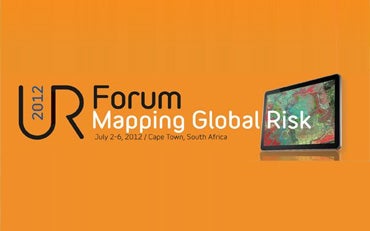 It was gratifying this morning to sit in a room filled with disaster risk reduction and management experts from around the world to open the 2012 Understanding Risk Forum. The Forum focuses on how countries and their development partners can work together to protect people and communities against the impacts of climate-related natural disasters.
It was gratifying this morning to sit in a room filled with disaster risk reduction and management experts from around the world to open the 2012 Understanding Risk Forum. The Forum focuses on how countries and their development partners can work together to protect people and communities against the impacts of climate-related natural disasters.
In Sub Saharan Africa, these disasters range from floods caused by cyclones and rising sea levels in coastal countries like Mozambique and Madagascar, to droughts caused by too little rainfall in places like Mauritania, Mali, Chad, Burkina Faso and Niger in the Sahel and Somalia, Ethiopia, Eritrea and Sudan in the Horn. As the World Bank's Jonathan Kamkwalala said, many disasters are hydro-meteorological in nature, meaning too little water resulting in droughts or too much water resulting in floods. Volcanoes also are a concern in Africa, although many wouldn't know it. The Democratic Republic of Congo's Mount Nyiragongo is an active volcano, one that could erupt in the very near future.
Managing these types of disasters and the impacts from a globally changing climate is what more than 350 experts from governments, development agencies, NGOs, civil society, academia and the private sector will focus on this week in Cape Town, South Africa. The location is particularly apt. Adding to its obvious beauty, Cape Town is home to the Cape Floral Kingdom, one of the world's 25 most threatened biodiversity hotspots. Climate change is on every Capetonian's mind.
At the Forum, sessions will highlight innovations in GIS mapping technology, drought response and resilience, crowdsourcing for development, and meteorological and hydrological services for risk analysis, among others. At stake is the infrastructure and economies of hundreds of cities in Africa and across the globe, and the lives of millions of people.
If you're interested in learning more about reducing the risks of natural disasters in your community and around the world, visit http://www.understandrisk.org
Related: Feature Story


Join the Conversation